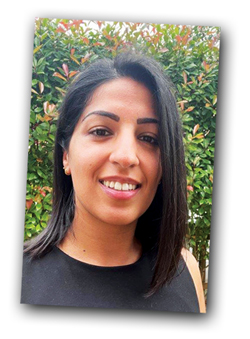 Welcome to our paediatric nutrition column ‘Paediatric update’. In each column, Kiran Atwal, Freelance Paediatric Dietitian, will update you on new guidance, tools and current affairs. Here, Kiran explores: ‘A gut feeling – exploring the links between inflammatory bowel disease and eating disorders in adolescents’.
Welcome to our paediatric nutrition column ‘Paediatric update’. In each column, Kiran Atwal, Freelance Paediatric Dietitian, will update you on new guidance, tools and current affairs. Here, Kiran explores: ‘A gut feeling – exploring the links between inflammatory bowel disease and eating disorders in adolescents’.
The gut-brain axis refers to the bidirectional network between the brain and the gastrointestinal tract.1 Disruptions to the complex interplay of factors, such as the microbiome, nerve signals and hormones, may lead to disorders of the gut and mental wellbeing.1 Specific disorders are linked, such as inflammatory bowel diseases (IBDs) and eating disorders (EDs), but often go unrecognised.2 The overlapping challenges, predisposing risk factors and psychological characteristics are less well known.2
To explore how common psychological profiles may contribute to disorders of the gut-brain axis, a small case-control study recruited adolescents (aged 13-18 years) with IBDs or restrictive eating disorders (REDs).3 A variety of validated psychometric tools were used to collect psychological and behavioural traits of common eating disorders.
In the IBD group, ulcerative colitis was the most common disorder (77% were in remission at the time of the study); anorexia nervosa was most common in the RED group (disorder activity was not reported). As many as 15.8% of the IBD group were at risk of developing EDs and demonstrated similar psychological traits to those with REDs. Key similarities between these groups included drive for thinness, interpersonal insecurity and alienation, interoceptive deficits, affective problems, anxiety, depression, interpersonal sensitivity and emotional blindness. However, key differences showed that the IBD group did not display the same extent of disordered eating or body image issues as those with REDs. Furthermore, behavioural traits such as food restriction during IBD flare-ups were medically driven (rather than psychologically) in the IBD group, compared to the RED group. Other indices, including female sex and longer disease duration, were also associatedwith an increased risk for the development of EDs.3
Whilst this study reinforces the relevance of the gut–brain axis and that there is some overlap and distinct profiles of patients with IBDs and REDs, the findings are predominantly based on a small subset of specific disorders (namely ulcerative colitis and anorexia nervosa). This not only limits the reliability of the study but also the degree of generalisability to other conditions within the spectrum of IBDs and REDs (such as Crohn’s disease or bulimia nervosa). Being aware of the potential similarities and differences may aid understanding and identification of complex cases or those at risk. More extensive research is required to validate the traits identified as risk factors in this study. Profiling distinct conditions instead of groups, may offer more precise insights and risks.
Though the researchers did not discuss the model of care used at the tertiary centres in Italy where the patients were recruited, this study does underscore the importance of a multidisciplinary, bio-psycho social model of care. Using tailored approaches with an integrated team (consisting of gastroenterologists, dietitians and psychologists) could address individual physical and mental health needs of those living with IBDs and REDs. If further research can aid early identification of the overlapping traits associated, this may prevent progression towards more severe presentations. Then dietitians can play a key role by coordinating with multidisciplinary teams to identify early warning signs. This may involve screening of emotional states, coping strategies and food fears, which may give way to signs of REDs in IBD patients, or to support RED patients who present with gastrointestinal symptoms.
References: 1. Mayer EA, Tillisch K, Gupta A (2015). Gut/brain axis and the microbiota. J Clin Invest.; 125(3): 926–938. 2. Lewis K, et al. (2019). The Prevalence and Risk Factors of Undiagnosed Depression and Anxiety Disorders Among Patients With Inflammatory Bowel Disease. Inflamm Bowel Dis.; 25(10): 1674–1680. 3. Riva A, et al. (2025). “Inside the Gut–Brain Axis”: Psychological Profiles of Adolescents with Inflammatory Bowel Diseases and with Restrictive Eating Disorders. Nutrients; 17(10): 1706.
Dec 24/Jan 25: US infant formula shortage – what lessons can be learnt?
November 2024: The significance of mid-upper arm circumference in childhood malnutrition screening
July 2024: Ultra-processed foods: ultra risk in children?
June 2024: Artificial intelligence (AI): a taster of what to expect
May 2024: Food-induced Anaphylaxis & Making Children’s Lives Safer
April 2024: The Value of New Clinical Practice Tools in Paediatric Dietetics
March 2024: Measuring Body Composition of Hospitalised Children: Why, and is it practical?